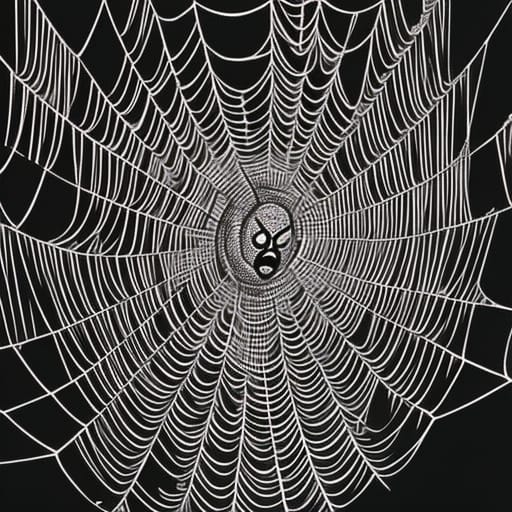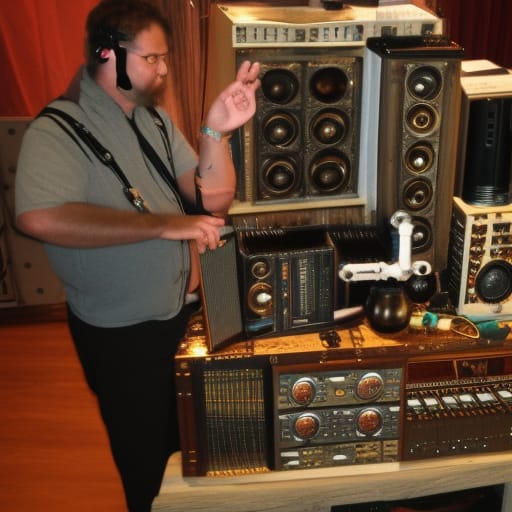What webs we weave

So far, we've solidified our sense of self: our relationship with our mind, body, and reality that they exist in. Finding motivations within, rooting ourselves with purpose, tethering to the present moment, and allowing our authentic selves to bloom. Without this, egos form around false ideals which lead to fragile states of existence. For too often reality does not meet expectation, which can lead to a stress filled life.
We also have worked to solidify our connection with others, who are also connected to their sense of self. Diversity increases as we accept ourselves and accept others as themselves. Allowing ourselves to become a unique piece in the puzzle, and just as puzzles pieces do not connect with every other piece of the puzzle, there is still a place where they are meant to be. It is important to foster respect for everyone's uniqueness. The more diversity you have, the more options will be present when challenges occur. This extends beyond just human interactions as well.
Relationships with the planet we live on, with nature (both flora and fauna), with shelter, with the objects we interact with, are also important to cultivate as well. Sometimes they are the tools we utilize to better the world around us, and if that is the case, then we should do our best to maintain the condition of those tools so that stay useful for as long as possible. Sometimes we are the tools that must do the work to cultivate a better world for others, and if that is the case, then we should learn to set our egos aside so that we are not too self-serving in our utility. The more we know ourselves, the better we can tell what is important for us to cultivate, and what is important to cultivate for others. Often, allowing space for others to exist is sufficient. Oddly enough, this was a lesson I learned greatest as an audio engineer.

When recording an array of musicians and/or instruments, the main goal is to just capture the sound as authentically as possible. While there is a good degree of technicality when it comes to mic placement and acoustics, I feel like that is the easiest part of the process. Challenge comes just a bit later when you have all these wonderful sounding full range recordings, and you have to make them all fit together into this very tiny box that can be easily sent to your listening devices. For you see, instruments sound best when they have the full audio spectrum to play with, but when every instrument is competing for the same frequency, decisions will have to be made. This is where audio engineers get to become story tellers.
It takes a keen ear and intimate knowledge of the frequencies each instrument occupies to find the right pocket for each in the mix. Creating space for those instruments to shine is the main job of any engineer. Too much information in one spot will muddy up a track, too little and it will feel hollow. Each instrument wants to be heard, and usually degree all at the same time (unless you are working with some top-notch musicians that understand the importance of stepping in and out of the song, many tips of the hat to them). Being able to find a space for all while also emphasizing the important notes throughout the flow of the song really speaks to ones understanding of audio mixing. Each engineer is doing their own little bit of world building, often through lands they are not familiar with, just trying to let the artist's technique and intention shine through to the best of their ability. There are a lot of similarities here to life.
We all have a certain amount of time that we have to work with. We all have too many things competing with one another to be heard the most. We can only absorb so much at one time. Dedicating a section of time for something will allow you to give it your full attention. Offering space will allow it to grow organically. Then you can accept it for what it wants to be and choose your actions from there. It's something I wish we did more of for the various cultures around the world. A lot of them lost to time. Doesn't mean diversity can't grow again, but it must be fostered and accepted for what it wants to be, not for what it is expected to be.
I dream of a world where the next town over is just as foreign as the country across the world. Steeped in generations of traditions that set them apart, as well as connect them as a whole. Celebrating what is both alike and different.
To apply this to worldbuilding, most of the time you find that regions are defined by an overarching theme, typically based off geography and climate. While these two elements do play a large factor in how a region is shaped, the people are really what makes an area feel alive. People give the city its identity. Its culture comes from the identity and its influence with surrounding cultures. How those play together, one needs to keep in mind the strengths of its culture, the strengths of the cultures around it, how that relates to the environment, and what needs to shine through the most. As with mixing audio, as with worldbuilding, as with life; we must set aside space for ourselves to occupy, and space for others to occupy. The amount of space needed is always changing and that's what makes life a dance.
Well, that = that. Would love to hear any questions, feedback, encouragement, etc. that you may have, so feel free to reach out! Also, please to subscribe to the mailing list if you haven't already. It's the best way to stay up to date with the latest posts.
Thanks for reading! :)
